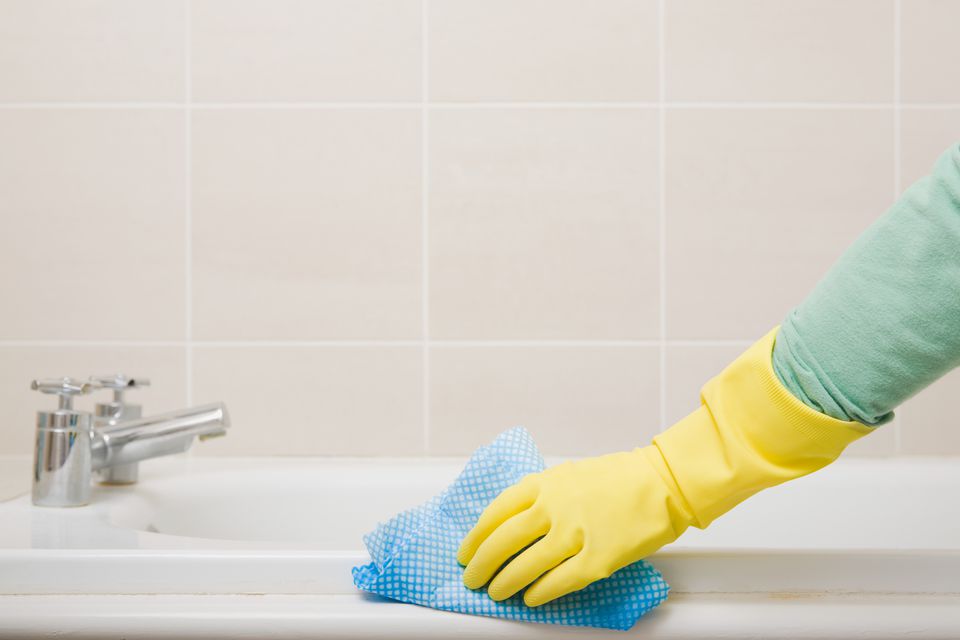Aging is inevitable but certain treatments help. It’s the same case when it comes to the brown stains in the sinks and toilets overtime. But how to identify the underlying issue of these brown stains? That’s when you require a professional plumber’s help. After all, looks matter a lot. Especially for a bathroom.
These rustic stains does not necessarily imply an issue with your plumbing system or even in the water authority’s pipelines. Water with sufficiently high iron content can leave these stains behind over time. That’s right! Time to freak out if you’ve been drinking the same water. Even if the water tastes normal and appears to be clear, you might be living in an area with a lot of iron deposits, which mixes with the underground water which can cause costly damage and other issues.
I, myself have miserably failed experiences in rubbing these stains with toilet cleaner and scrub brush, but only ending up losing my energy but not the stains. The use of cleansers that contain bleach only worsens this problem, as the bleach chemically reacts with the iron in the water to create more rust in your sink or bathtub.
In sinks and tubs, the place where these stains most frequently form is in the little ridge around the drain. If you have a watertight tap, there may also be brown stains when the water is dropping.
So how do you get it done? Here’s a list down below. Check what you’ve got at your place and we’ll help you with using it!
1.BAKING SODA AND LEMON JUICE
Apply a mixture of equal parts of baking soda and lemon juice, slowly apply it on your sink, leave it for 10-15 minutes and scrub off the rust with a damp sponge and rinse with warm water.
2.WHITE VINEGAR AND BAKING SODA
Slowly add drops of white vinegar into baking soda and mix them together to form a paste. Pour it on the rust stains and leave it for 10 minutes. Wipe off with a thick piece of cloth.
3.PUMICE STONE
Wet the pumice stone and rub it on the tub or sink. Some of the pumice will dissolve in the water to form a paste as you rub it. Scrub the rust stains with the paste to remove them.
4.TOWEL
Rinse the sink and bathtub after use. Wipe down the bathtub and sink with a towel after each use to remove the iron residue.
5.WATER SOFTENER
Install a water softener in your home. Hard water contains dissolved calcium, magnesium, lime and iron. Use water softener salts specially formulated to remove iron from water and prevent rust stains in bathtubs, sinks, toilet bowls and laundry. These water softener salts often go by the names of Rust Out, Red Out or Iron Fighter Pellets.
Prevention is better than cure!
All the above methods will help to remove the stains. But what’s more important is the maintenance. So we thought of sharing some of the tips to help prevent the stains in the long term.
- Clean your bathtub and sink once a week to prevent rust stains from forming.
- Bathtub and sink cleansers such as Comet and Soft Scrub contain bleach, which can darken rust stains. Bleach oxidizes iron and can cause dissolved iron in water to pull out of the water, or precipitate, and collect on the surface of your tub and sink and rust.
- A paste made with three parts baking soda and one part white vinegar can also be used as a rust stain remover. Use it like you would a powder cleanser.
- Remove metal spray cans from your bathtub or sink and store them in a cupboard or cabinet. Metal cans, such as shaving cream cans, air freshener sprays and hair spray cans have a metal ring on the bottom that rusts and stains bathtubs and sinks.
No sink, toilet or tub is made to last forever, and etched-in rust stains may have you thinking about replacement. The plumbers on board at QuickHelp.lk can not only help you install new fixtures, they can help you stop the problem at its source.
QuickHelp let’s you book professional, experienced and reliable plumbers in a click of a button! Our Plumbers in Sri Lanka are experienced and trained to figure out and fix all your plumbing related issues!
Looking for a Plumber?
-
Services
Plumbing



